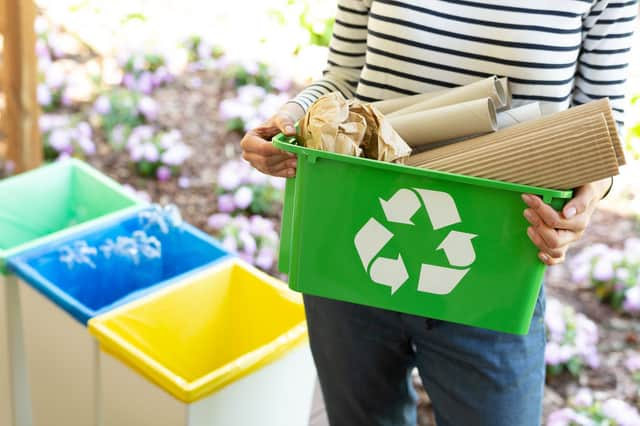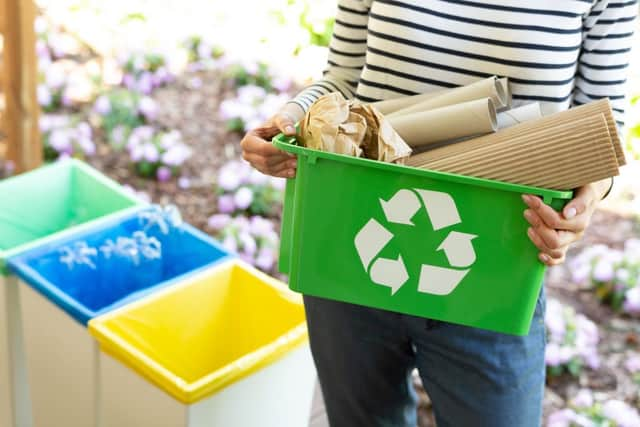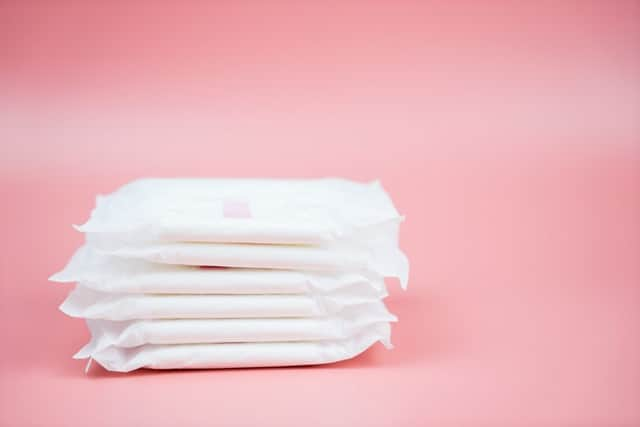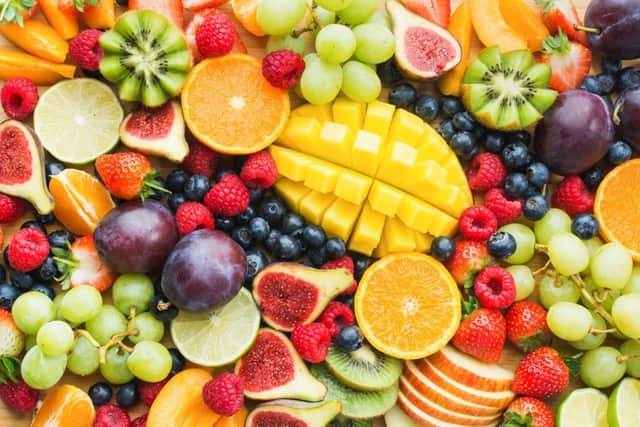Going Green: Importance of going green and how best you can start now!


The latest article from Angela Terry
Green Green campaigner and consumer expert, Angela Terry, separates climate change facts from fiction and here she explains how you can take simple, practical steps to help save the planet. Follow @ouronehome & visit https://onehome.org.uk/ for more advice.
Q: I’m a small business owner. How do I green my business?
A: With energy prices spiking and concerns about climate change at an all-time high, there has never been a better time for businesses to go green.
Why go green?


It’s good for the planet ... and your bottom line!
Improving resource efficiency will save you money by reducing your bills.
Advertisement
Hide AdAdvertisement
Hide AdIn turn, cutting the money you spend on waste disposal, water, heat, power and transport bills will reduce your carbon footprint.
What’s more, going green will improve your reputation, bring new opportunities, boost staff recruitment and help futureproof your business.
The UK Government has committed to halving emissions by 2030 and achieving net zero by 2050.
It’s better to act now, rather than later. Climate consumers are a growing market from which you could profit.
How do you start?
Advertisement
Hide AdAdvertisement
Hide AdStep one is understanding your company’s impact on the environment by working out the amount of carbon emissions its activities release into the atmosphere.
Then you can start reducing them.
The Carbon Trust’s report (Small and Medium-Sized Enterprises) explains how to measure and cut your carbon footprint.
It has an online small business carbon footprint calculator. You can also seek advice from the Federation of Small Businesses and the British Chamber of Commerce.
Ready to commit?
If you want to commit to net zero, then the UK Government’s online ‘SME Climate Hub’ provides free tools and resources, including advice on financial support.
Help for retail and hospitality
Advertisement
Hide AdAdvertisement
Hide AdIf you’re a café, bar or shop owner, you can seek free advice from the Retail Sector Council and Green Street’s websites.
Is funding available?
Yes! A range of green business grants are available.
You can apply for free energy assessments or carbon surveys to identify emissions and get advice on how to reduce them
There’s a comprehensive guide on the Zero Carbon Business website.
Beware greenwash
Consumers and the media are increasingly wary of companies’ green claims.
Advertisement
Hide AdAdvertisement
Hide AdThe most admirable companies are transparent, accountable and honest about their climate action. Always follow the Green Claims Code.
A better way of doing business
B Corps are businesses that balance profit with purpose
The B Impact Assessment is a great way to explore what sustainability would look like for your company.
Social enterprises are set up to put people and planet before profits.
Find out more on the ‘Social Enterprise UK’ website.
Celebrity spot
One of the world’s highest-paid actresses Natalie Portman has invested in an eco-friendly alternative to meat with a unique ultra-realistic texture.


Advertisement
Hide AdAdvertisement
Hide AdDesigned to have far fewer carbon emissions than meat, it was formulated and patented by two Harvard graduates.
They are now the founders of Tender Food, the Boston-based company that Portman’s backing.
The Oscar-winner has been vegetarian since the age of nine and vegan since 2011.
Due to her concerns for the environment, she feeds her children plant-based meals too.
Green Swap
Advertisement
Hide AdAdvertisement
Hide AdEach year sanitary pads, tampons and their applicators generate 200,000 tonnes of waste in the UK.


For zero waste periods, why not switch to a reusable Mooncup or re-washable period pants from brands like Wuka, Modibodi and good old M&S.
Growing your own veg helps planet and purse


As the price of food rises, it’s increasingly hard to buy all the fresh fruit and veg your family needs.
But have you thought about growing your own? It’s easier than you think and also good for the planet.
UK food security
Advertisement
Hide AdAdvertisement
Hide AdDid you know that in the UK we only grow 18 per cent of the fruit and 55 per cent of the veg we eat?
Our self-sufficiency has fallen dramatically since the 1980s.
Depending on imports impacts on both the cost of living crisis and the environment.
Global warming means that some of the crops grown in hotter climes that we currently depend on are at risk of becoming increasingly scarce due to a rise in droughts, tropical storms and floods.
If we grew our own we could be practically self-sufficient.
Advertisement
Hide AdAdvertisement
Hide AdA study by Lancaster University showed that we could grow 40 per cent of the fruit and veg we consume in the UK purely by using urban green spaces like gardens, parks and recreational areas.
On top of all the produce grown on farms, this would mean we’d barely need any imports.
Saving money
You can grow 1kg of baby carrots for 25p or you can buy them in the supermarket for about £3.30 according to the consumer experts at Which?
Indeed, research from the National Society of Allotment and Leisure Gardeners found that growing their own could help Brits save £1,300 on their annual food bill.
Getting started
You don’t need any fancy tools or a huge amount of space.
You can start small and build as you learn.
Advertisement
Hide AdAdvertisement
Hide AdYou could begin with a single tomato plant or a pot of cress on your kitchen windowsill.
There’s so much info online. The Royal Horticultural Society’s website is full of tips and advice.
Your local library will also have gardening reference books – or ask green-fingered friends for tips.
Soil health
Trying to enrich your garden’s soil health will result in healthier plants and bigger yields – and ensure your soil’s long-term viability. That’s why it’s best to avoid chemical fertilisers.
Advertisement
Hide AdAdvertisement
Hide AdThe charity Garden Organic has a free online Soil Information Pack with useful tips relating to soil health and a guide to composting.
Pesticides aren’t a great idea either. The Pesticide Action Network’s website has info on safer ways to deal with common garden pests.
Fact or fiction
Cigarette butts are most common form of litter on Earth.
Yes, kind of!
They’re most common plastic litter as they’re primarily made from cellulose acetate. Some 45 trillion butts pollute our planet so best dispose of them in the bin!
For previous articles visit:
Advertisement
Hide AdAdvertisement
Hide Ad